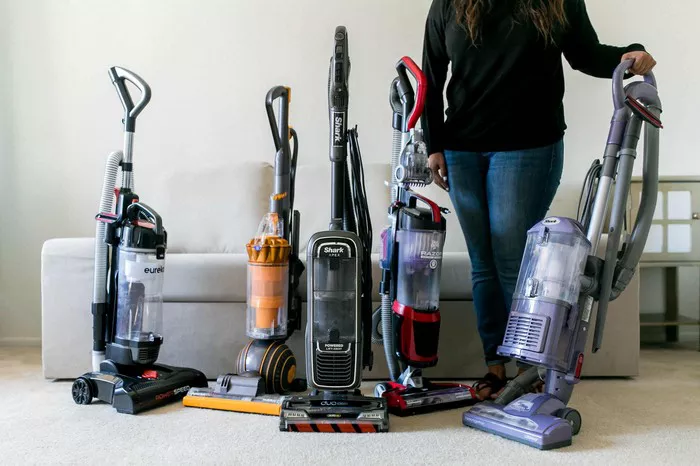A clean home is essential, but a smelly vacuum can ruin that sense of freshness. The unpleasant odors that can emanate from a vacuum cleaner are often caused by dust, pet hair, food particles, and mildew. Understanding how to keep your vacuum smelling fresh is crucial for maintaining a pleasant atmosphere in your home. This article will explore effective methods for eliminating odors from your vacuum and keeping it smelling good.
Understanding the Causes of Odors in Vacuums
Why Does My Vacuum Smell?
Vacuums can develop odors for several reasons. The most common cause is the accumulation of dirt and debris inside the vacuum cleaner. When these particles become trapped, they can rot or decay, resulting in unpleasant smells.
Another contributing factor is the presence of pet hair. Pet dander and hair can easily clog filters and bags, leading to a musty odor. Furthermore, if you vacuum up wet items or spills, this moisture can create a breeding ground for bacteria and mold.
The Importance of Addressing Odors
Ignoring odors in your vacuum can lead to worse problems down the line. A smelly vacuum may be a sign of a deeper issue, such as a clogged filter or a full dustbin. Regular maintenance is essential not only for the longevity of your vacuum but also for maintaining a clean and healthy living environment.
Basic Maintenance for Your Vacuum Cleaner
Empty the Dust Bin Regularly
One of the simplest ways to keep your vacuum smelling fresh is to empty the dust bin regularly. If your vacuum has a bag, change it frequently. A full dust bin or bag can trap odors and reduce the vacuum’s effectiveness. Ideally, you should empty the dust bin after each use or at least once a week if you vacuum regularly.
Clean the Filters
Most vacuums have filters that trap dust and allergens. Over time, these filters can become clogged and can retain odors. Depending on your vacuum model, the filters may be washable or replaceable.
For washable filters, remove them from the vacuum and rinse them under warm water. Allow them to dry completely before reinserting them. If your vacuum uses replaceable filters, check the manufacturer’s recommendations for how often to change them. Doing so can help reduce odors and maintain suction power.
Check for Clogs
Clogs in the vacuum hose or attachments can lead to trapped dirt and odors. Regularly inspect the hose and other components for blockages. If you notice a decrease in suction or hear unusual sounds, it may be time to check for clogs. Clear any debris you find to ensure proper airflow and function.
Deep Cleaning Your Vacuum
Wipe Down the Interior
After emptying the dust bin, take the time to wipe down the interior of the vacuum. Use a damp cloth and mild detergent to clean the walls of the dust compartment. This removes any lingering dust and helps eliminate odors.
Make sure to dry the interior thoroughly to prevent moisture buildup. Moisture can contribute to the growth of mold and bacteria, which can lead to unpleasant smells.
Disinfecting the Brushes
The brushes in your vacuum can also trap dirt and hair, leading to odors. Remove the brushes from the vacuum and clean them thoroughly. Use scissors to cut away any hair or fibers wrapped around the bristles. You can soak the brushes in warm, soapy water to disinfect them.
Once cleaned, rinse them and let them dry completely before reattaching them to the vacuum.
Using Baking Soda
Baking soda is an excellent natural deodorizer that can help eliminate odors in your vacuum. After cleaning your vacuum, sprinkle a light layer of baking soda inside the dust bin or bag. Allow it to sit for a few hours or overnight before vacuuming it up. This will absorb odors and leave your vacuum smelling fresh.
Additional Tips for Keeping Your Vacuum Smelling Fresh
Avoid Vacuuming Wet Items
It’s important to avoid vacuuming up wet items, as this can lead to mold and mildew growth within your vacuum. If you accidentally vacuum up liquid spills, disassemble the vacuum and allow it to dry thoroughly.
Store Your Vacuum Properly
How you store your vacuum can affect its smell. Ensure it is in a dry area with proper ventilation. Avoid storing it in damp basements or closets, as moisture can contribute to odor development.
Use Scented Products Cautiously
If you enjoy a pleasant smell while vacuuming, consider using scented products specifically designed for vacuums. Some manufacturers offer scented vacuum bags or filters. You can also add a few drops of essential oil to a cotton ball and place it in the dust bin. However, use these products sparingly, as too much fragrance can overwhelm the senses or even clog filters.
Regular Maintenance Schedule
Establishing a regular maintenance schedule can help you keep your vacuum in good working condition. Set reminders to empty the dust bin, clean the filters, and wipe down the interior every month. This proactive approach can prevent odors from developing in the first place.
Conclusion
Keeping your vacuum smelling good is a straightforward process that requires regular maintenance and attention. By understanding the causes of odors and implementing a cleaning routine, you can ensure your vacuum remains fresh and effective. Regularly emptying the dust bin, cleaning the filters, and deep cleaning the vacuum will go a long way in maintaining its performance and pleasant smell. With these tips, you can enjoy a clean home and a vacuum that enhances, rather than detracts from, your living space.
Related topics:

